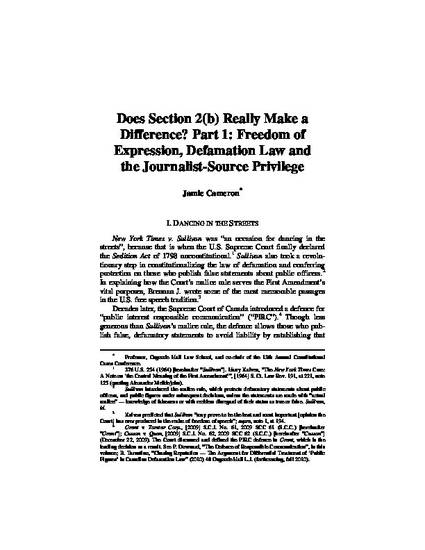
Twice in recent years the Supreme Court of Canada has stepped away from Church of Scientology; first, WIC Radio modified the fair comment doctrine, and the n Grant v. Torstar introduced a “public interest responsible communication” defence. Both times the Court considered Charter values but failed to incorporate constitutional standards into the common law of defamation. More recently, R. v. National Post, dealing with confidential journalist sources, followed the same pattern of engaging Charter values without altering the common law to comply with Charter standards. This article argues that it is not enough for the Charter to inform the common law: The Charter will not really make a difference until the common law incorporates Charter concepts and standards into the doctrines that place limits on expressive freedom.
Available at: http://works.bepress.com/jamie_cameron/87/
